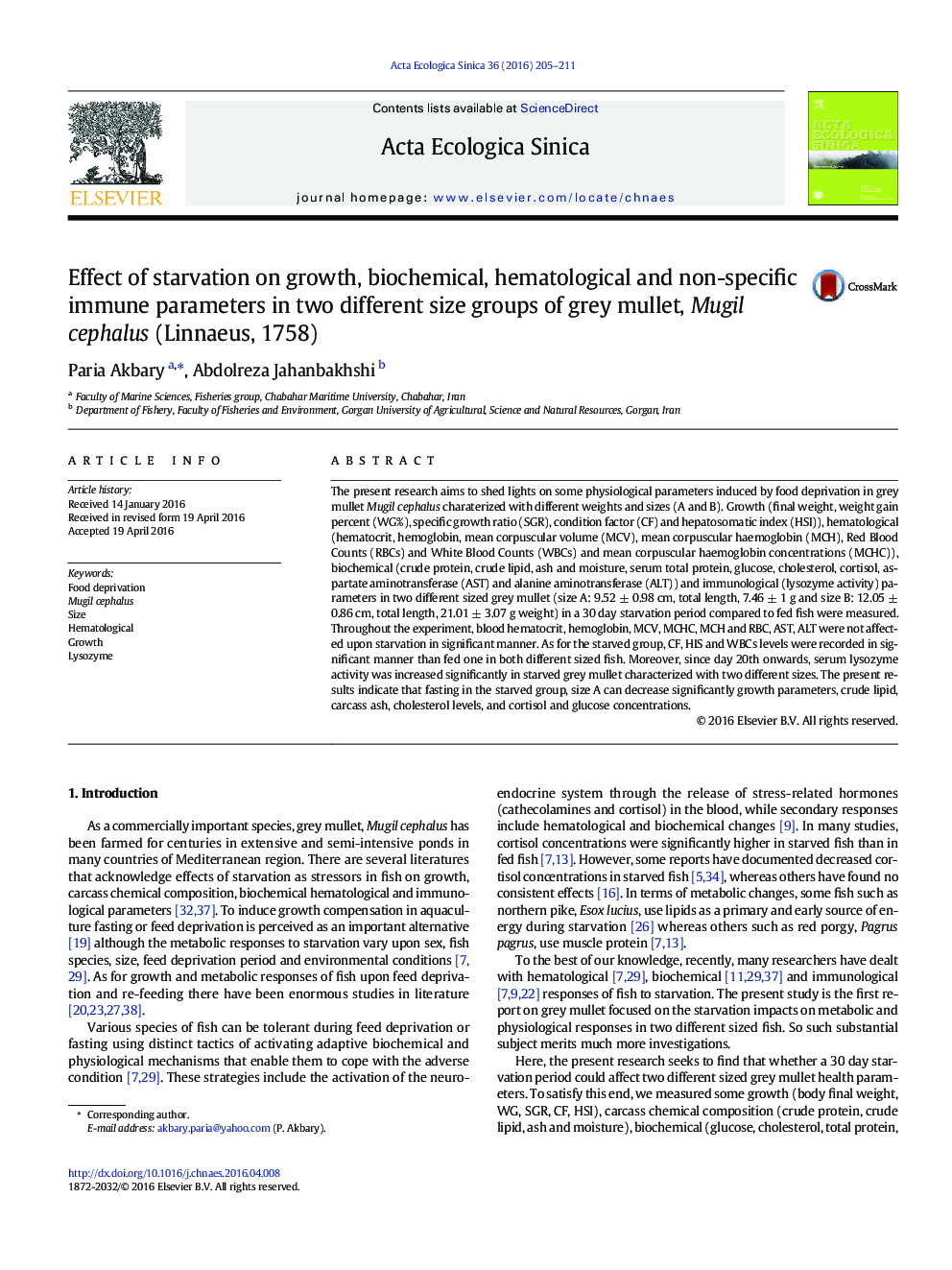| Article ID | Journal | Published Year | Pages | File Type |
|---|---|---|---|---|
| 4379790 | Acta Ecologica Sinica | 2016 | 7 Pages |
Abstract
The present research aims to shed lights on some physiological parameters induced by food deprivation in grey mullet Mugil cephalus charaterized with different weights and sizes (A and B). Growth (final weight, weight gain percent (WG%), specific growth ratio (SGR), condition factor (CF) and hepatosomatic index (HSI)), hematological (hematocrit, hemoglobin, mean corpuscular volume (MCV), mean corpuscular haemoglobin (MCH), Red Blood Counts (RBCs) and White Blood Counts (WBCs) and mean corpuscular haemoglobin concentrations (MCHC)), biochemical (crude protein, crude lipid, ash and moisture, serum total protein, glucose, cholesterol, cortisol, aspartate aminotransferase (AST) and alanine aminotransferase (ALT)) and immunological (lysozyme activity) parameters in two different sized grey mullet (size A: 9.52 ± 0.98 cm, total length, 7.46 ± 1 g and size B: 12.05 ± 0.86 cm, total length, 21.01 ± 3.07 g weight) in a 30 day starvation period compared to fed fish were measured. Throughout the experiment, blood hematocrit, hemoglobin, MCV, MCHC, MCH and RBC, AST, ALT were not affected upon starvation in significant manner. As for the starved group, CF, HIS and WBCs levels were recorded in significant manner than fed one in both different sized fish. Moreover, since day 20th onwards, serum lysozyme activity was increased significantly in starved grey mullet characterized with two different sizes. The present results indicate that fasting in the starved group, size A can decrease significantly growth parameters, crude lipid, carcass ash, cholesterol levels, and cortisol and glucose concentrations.
Related Topics
Life Sciences
Agricultural and Biological Sciences
Ecology, Evolution, Behavior and Systematics
Authors
Paria Akbary, Abdolreza Jahanbakhshi,
